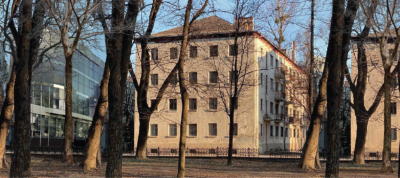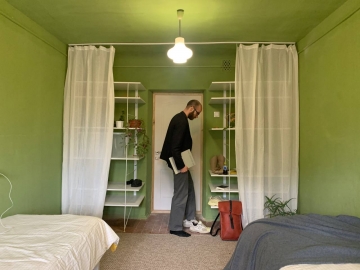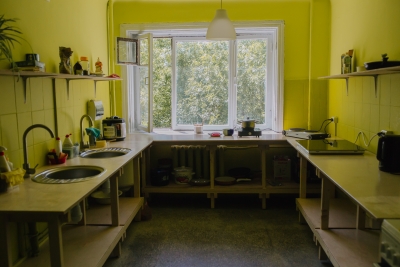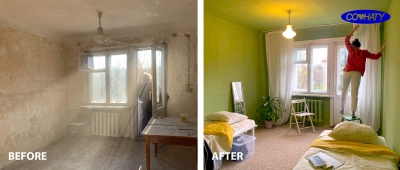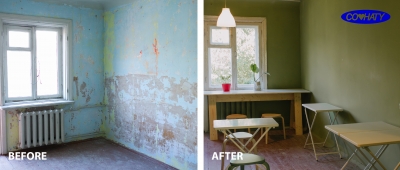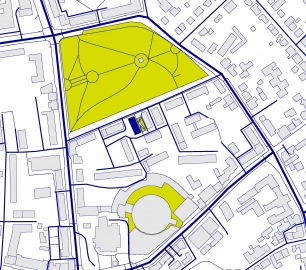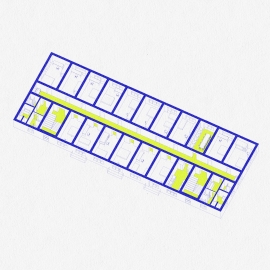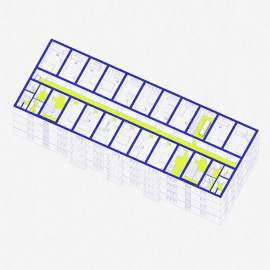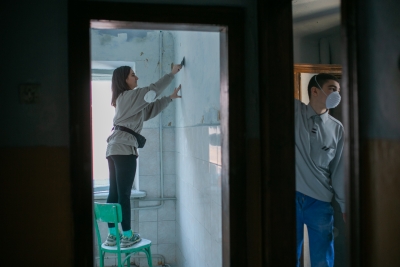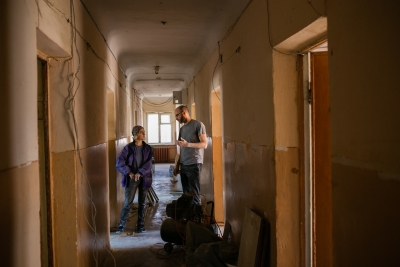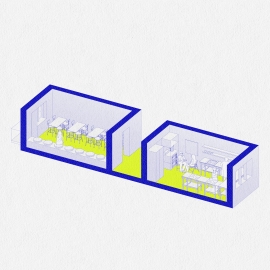CO-HATY – pilot project of аdaptation of a vacant dormitory for IDP housing
The CO-HATY project converts vacant spaces into emergency temporary accommodation for internally displaced people in Western Ukraine.
WHY "CO-HATY"?
(HATY) – in Ukrainian, "HOUSES"
(COHATY) – in Ukrainian, “TO LOVE”
CO-HATY is a co-housing project for people who lost their homes due to war.
In late March 2022, the METALAB team collaborated with the volunteer initiative "Second Home IF" to renovate a university dormitory that had been vacant for the past five years. The refurbishment of a section of a dormitory in Ivano-Frankivsk served as a pilot project for CO-HATY. More than 100 volunteers participated in these efforts, with the majority of them being internally displaced persons from various regions of Ukraine. In just six weeks, with donated from all over the world 140,000 euros, the pilot project of vacant dormitory adaptation provided a new home for 170 internally displaced people.
Throughout the project, 24 rooms were renovated and furnished, in addition to common areas. These spaces included four kitchens, a dining area, a children's room, bathrooms, laundry facilities, a co-working space, and an entrance area. Notably, a significant portion of the furniture used in the renovation was crafted by local producers, highlighting the project's commitment to supporting the local economy while providing essential services to those in need.
The russian invasion of Ukraine forced approximately 12 million Ukrainians to leave their homes, with 6.5 million relocating to the western part of the country. However, due to housing policies over the past few decades, there is a shortage of affordable temporary housing. In response, CO-HATY collaborates with local governments and a vast network of agencies to refurbish and repurpose large, vacant post-Soviet municipal buildings into emergency accommodations.
CO-HATY serves as an example of an urban design studio adapting to a crisis, providing emergency housing while upholding key housing rights principles for marginalized internally displaced communities. Retrofitting and renovating not only enable quick delivery but also significantly reduce the project's embodied energy. METALAB has integrated long-term thinking into this project's execution, continuing to work with municipal authorities and key housing stakeholders to offer holistic support to internally displaced people and reshape the housing narrative in Ukraine, moving away from privatization.
CO-HATY adopts a sustainable approach in various aspects:
Materials and Structure:
- Building Repair: CO-HATY reduces embodied energy by repairing abandoned buildings instead of constructing new ones.
- Furnishings: The project furnishes homes with donated second-hand items, promoting recycling and reuse.
- Local Sourcing: Locally sourced materials minimize carbon emissions from importing.
Cost and Funding:
- Volunteer-Based: The project relies on volunteers, reducing labor costs.
- Diverse Funding: Funding sources include IM Swedish Development Partner, MitOst, Raumpioniere, Danish Refugee Council, and global community donations.
Maintenance Recommendations:
- Donation Sourcing: Continue seeking charitable donations for furnishing homes.
- Energy Efficiency: Regularly assess and improve building energy efficiency.
- Local Sourcing: Maintain local material sourcing for sustainability.
- Diversify Funding: Explore additional funding sources for long-term sustainability.

